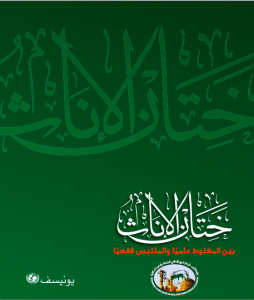 Foreword
Foreword
Praise Allah, Lord of the worlds. May the prayers and the peace of Allah bless our Prophet, as well as on his family and friends.
Excision, also called female genital mutilation, is deeply rooted in the History of a lot of peoples and nations. In spite of what one may think, debates about FGM are not recent. Already in 1940, in the magazine Al-Manar, Cheikh M. Rashid Rida answered the following question: “Is FGM a Fardh (compulsory practice of Islam) or a Sunnah (practice that is recommended by the Prophet)?” Also, in the magazine Liwa Al-Islam, published in June 1951, great scholars were interrogated about the issue: Cheikh Ibrahim Hamroush, member of the Association of Muslim Scholars and president of the Committee of Fatwas of the University of Al Azhar, Mr Abd ElWahab Khalaf, professor teaching Sharia at the Faculty of Law, and Cheikh Mahmoud Bik AlBanna, also member of the Association of Muslim Scholars, amongst others. All were unanimous: FGM is a matter of culture, it could be abandoned if there were solid scientific proofs that it is dangerous. Also, Cheikh Muhammad Arafa, editor-in-chief of Al-Manar and member of the Association of Muslim Scholars, has approved the points of views of the scholars in his review in June 1953.
Throughout the History of the debates and discussions about FGM, Muslim Scholars based their opinions on medical sciences. That way, when the medical field declared it to be useful, Muslim legal experts declared FGM to be a “Makramah” (virtuous act). The word “Makramah” takes out the aspect of religious obligation of practice (wajib) and is no longer recommended by the Prophet (sunnah). It is more a matter of customs influenced by the knowledge and understanding of people at different moments of History. It is also well-known that legal experts have made their legal fatwa’s (bills) on a whole set of matters based on the points of views brought by experts, scientists and academics, who all informed the jurists of the harmful social, physical and psychological impact of FGM on women.
Islam teaches us to respect knowledge. It also teaches us to respect and glorify our ancestors’ virtuous acts. But it doesn’t mean that we have to agree with everything they did, especially if not done for the same reasons now. Islam wants us to be guided by an understanding of Sharia thanks to our ancestors, because they have accomplished their duty in a sober manner that is compatible with the knowledge as ordered by Allah the Almighty. But each period in History has its own conditions, and can have its own interpretations of the manners of its ancestors, interpretations that can be carried out by scholars to the present-day reality.
Download the document
